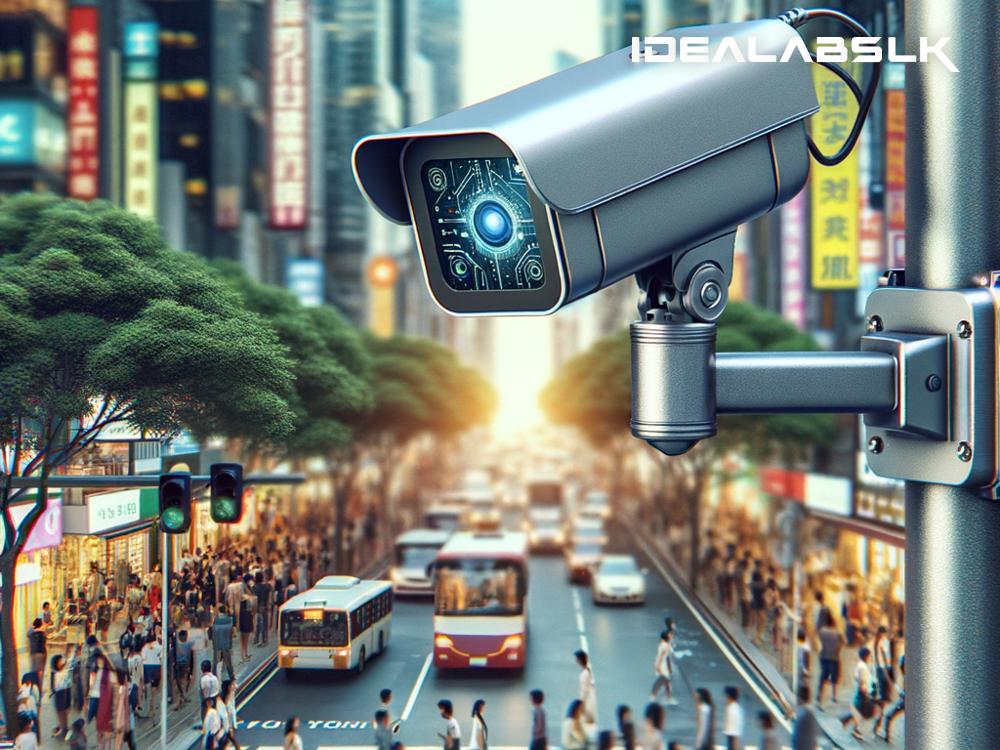Embracing the Future: AI in Smart Cameras for Dynamic Scene Detection
In today’s fast-paced world, where every moment is fleeting, capturing it in its purest essence requires more than just a click. Cue in the revolutionary role of Artificial Intelligence (AI) in smart cameras, a game-changer in how we perceive and capture the world around us. AI has seamlessly integrated into our lives, and its application in smart cameras for dynamic scene detection is a testament to its incredible potential.
What is Dynamic Scene Detection?
Let's break down the jargon. "Dynamic scene detection" might sound complex, but it's a fairly simple concept at heart. Imagine you’re trying to take a picture of a bustling street. Cars are moving, people are walking, and amidst all this movement, you want to capture a clear, vibrant photo that feels alive. This is where dynamic scene detection comes into play. It's the camera's ability to understand and adjust to what's happening in the scene in real-time, ensuring every click is as life-like as possible.
The Role of AI in Smart Cameras
Enter Artificial Intelligence - the brain behind making smart cameras truly "smart". AI in cameras is not just about enhancing image quality; it's about teaching cameras to "see" and "understand" like humans do. Through AI, cameras can now recognize different objects, understand lighting conditions, and even identify whether you’re trying to capture a landscape, a portrait, or a fast-moving scene. This ability to interpret scenes in real-time and adjust camera settings accordingly is what makes every shot a masterpiece.
AI and Dynamic Scene Detection: A Perfect Match
When AI and dynamic scene detection come together, magic happens. Here’s how:
-
Real-Time Adjustments: AI enables the camera to make on-the-fly adjustments such as focus, exposure, and shutter speed based on the scene's dynamics. Say goodbye to blurry shots of your running pet or underexposed evening landscapes!
-
Object and Pattern Recognition: Cameras now can identify various elements within a frame – from faces to types of scenery (like beaches, mountains, etc.), and optimize settings in milliseconds for the best outcome.
-
Adaptation to Lighting Conditions: Ever tried taking a photo in mixed lighting and ended up with strange colors or shadows? AI helps by intelligently adjusting the white balance and exposure, ensuring the final photo looks as natural as possible.
-
Predictive Analysis: Some advanced AI systems can predict movement within the frame and adjust focus and settings even before the scene changes. This means even in the most unpredictable environments, your photos remain sharp and well-composed.
The Benefits Go Beyond Photography
The implications of AI in smart cameras extend far beyond capturing memories or beautiful sceneries. In security, AI-powered smart cameras can detect unusual activities or identify specific objects, making surveillance more effective and proactive. In traffic management, they can analyze and manage flow, detect accidents in real time, and even automate enforcement like speed detection.
Challenges and Considerations
While the advancements are exciting, they bring their own set of challenges. Privacy concerns emerge as cameras get smarter and more capable of recognizing faces and behaviors. Additionally, the reliance on AI also raises questions about the loss of the human touch in photography – where is the line between a photo being a technological marvel versus an artistic endeavor?
Looking Ahead
Despite these challenges, the future of AI in smart cameras is undeniably promising. As technology continues to evolve, we can expect even more responsive, intuitive cameras capable of capturing scenes with unprecedented detail and emotional depth. We're moving towards a future where cameras act not just as tools for capturing moments but as companions that enhance our understanding and appreciation of the world around us.
Embracing Change, Responsibly
As we stand on the brink of this new era in photography and surveillance, it’s essential to embrace these advancements while being mindful of their implications. By fostering conversations around ethics, privacy, and the role of AI, we can ensure that the future of smart cameras remains bright, responsible, and incredibly exciting.
The integration of AI in smart cameras for dynamic scene detection is a remarkable testament to human ingenuity. As we navigate this thrilling landscape, let's approach it with both excitement and caution, ensuring that technology serves to enhance, not detract from, our shared human experience.

